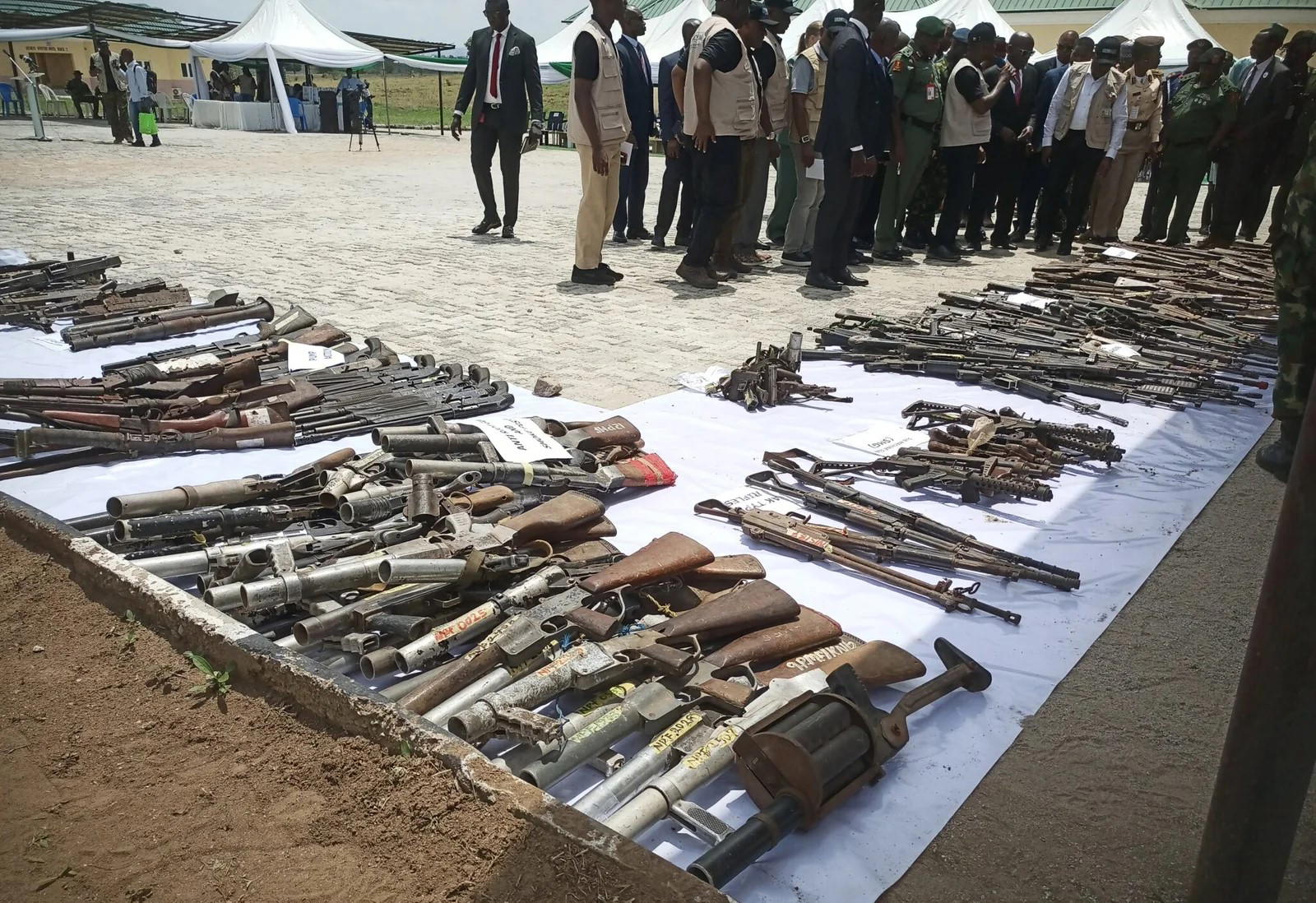
The proliferation of small arms and light weapons remains one of the most pressing security challenges confronting Nigeria today. From insurgency in the Northeast to banditry in the Northwest and armed robbery in urban centers, illicit firearms continue to fuel violence, displace communities, and weaken national security. Recognizing the scale of the crisis, the Federal Government of Nigeria has intensified its crackdown on small arms, this time forging a stronger partnership with the Nigerian Army to curb the menace.
In a bold demonstration of this resolve, the National Centre for the Control of Small Arms and Light Weapons (NCCSALW) recently destroyed 3,867 confiscated and surrendered firearms at Abuja’s Muhammadu Buhari Cantonment. This event, held in June 2025, was not an isolated gesture but the fourth weapons destruction exercise conducted since the establishment of the centre in 2021. It underscores the government’s determination to shrink the circulation of illegal weapons, which are often recycled into criminal hands.
The Nigerian Army has played a central role in this campaign. Through various operations across the country, it has intercepted weapons trafficked by armed groups. According to Major General Folusho Oyinlola of Operation Safe Haven, the Army recently handed over 220 small arms, 1,874 rounds of ammunition, and 83 cartridges to the NCCSALW. These recoveries highlight both the seriousness of the threat and the determination of the military to address it.
Beyond seizures and destruction, the government is strengthening inter-agency collaboration. The NCCSALW has begun working more closely with the Nigerian Customs Service to block illegal smuggling routes through the nation’s porous borders. This partnership is crucial given that many of the weapons circulating in Nigeria originate from conflict-ridden regions of Africa, including the Sahel and the Lake Chad Basin.
The Federal Government has also expanded the campaign to include community and traditional leaders. Recognizing that national security cannot be achieved by force alone, traditional rulers in the Northeast and North Central regions are being engaged to advocate against arms proliferation in their communities. Their involvement is seen as vital in persuading individuals and groups to surrender weapons voluntarily while fostering grassroots security consciousness.
Legally, the effort is backed by the NCCSALW Act 2024, which provides a strong framework for monitoring, regulating, and destroying illicit arms. With this legislation, the centre is empowered not only to enforce controls but also to raise public awareness on the dangers of unregulated weapons.
The urgency of these efforts cannot be overstated. Experts have repeatedly warned that the unchecked spread of small arms poses a danger comparable to weapons of mass destruction. A recent statement by a former Secretary to the Government of the Federation emphasized that the concentration of illegal firearms in places like the Lake Chad Basin threatens to destabilize entire regions.
Despite challenges, Nigeria has recorded important successes. Previous operations have already retrieved more than 20,000 illicit weapons and 60,000 rounds of ammunition nationwide. Each destroyed rifle or cartridge represents one less tool for bandits, insurgents, or kidnappers to terrorize innocent citizens.
The fight against small arms proliferation is far from over. However, the recent collaboration between the FG and the Army represents a crucial turning point. By combining military operations, inter-agency cooperation, legal enforcement, and community engagement, Nigeria is laying down a more comprehensive foundation to restore peace and security.
If sustained, these efforts could help reduce the gun-driven violence that has long plagued the nation and open the door to a more secure future for millions of Nigerians.